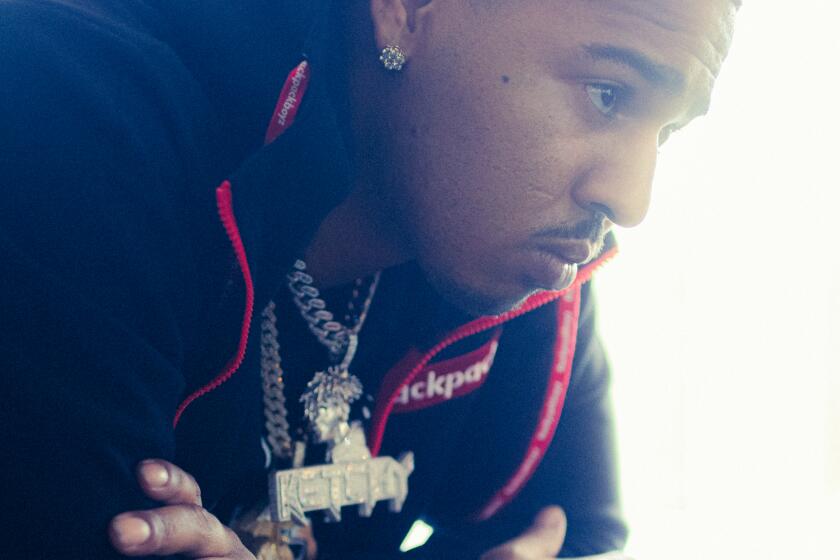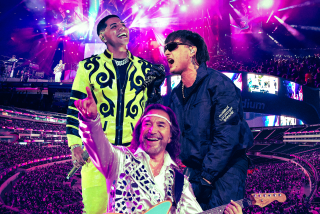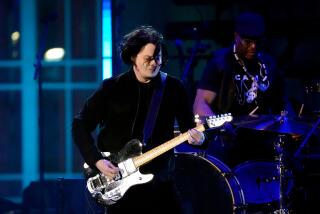Is there room for yet another major music festival in SoCal? Primavera Sound is about to find out
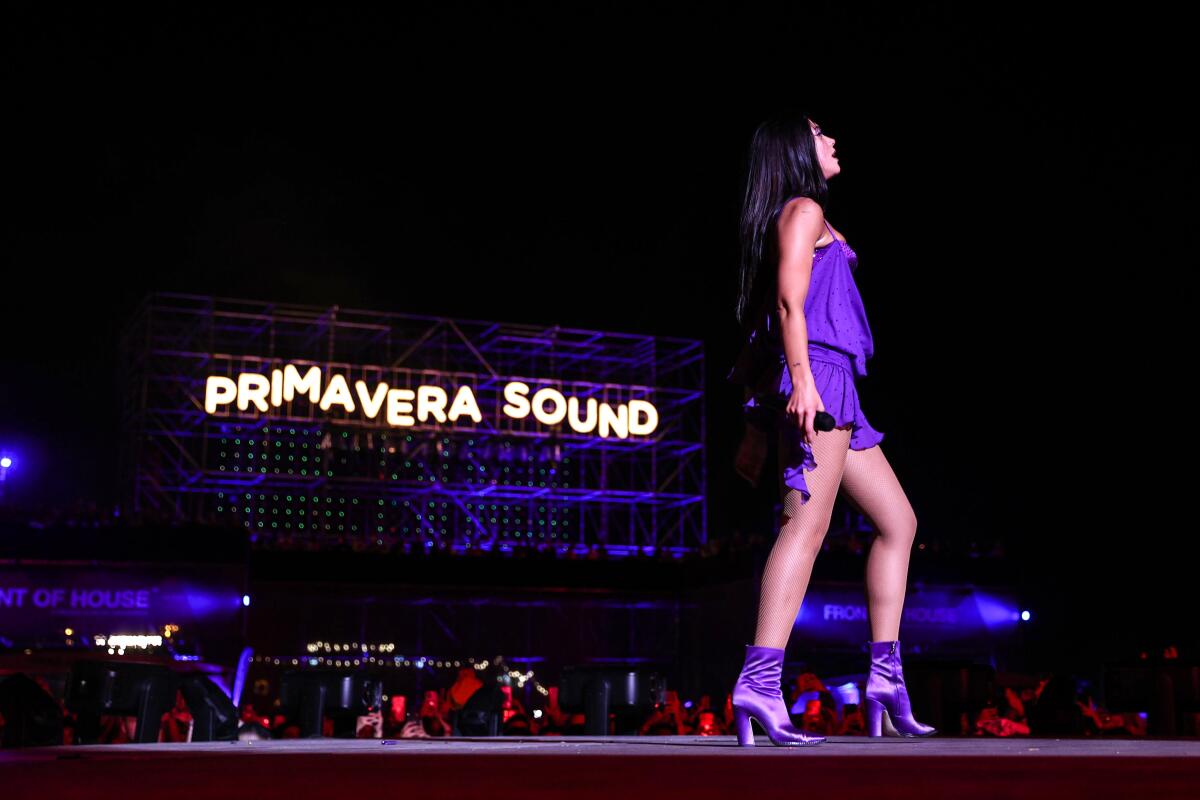
In June, Barcelonaâs marquee music festival, Primavera Sound, returned after two pandemic-thwarted years away. Headlined by Dua Lipa, Lorde, Gorillaz and Tyler, the Creator, the fest brought in 66,000 fans per day for two weeksâ worth of shows on the Mediterranean waterfront.
âThe return in Barcelona was special,â said Alfonso Lanza, Primavera Soundâs co-director. âThe atmosphere was so excited, people were eager to party. There was a lot of joy.â
When Primavera Sound makes it long-awaited L.A. debut Sept. 16-18 at the 25,000-capacity Los Angeles State Historic Park in Chinatown, it will enter a confusing environment for festivals in Southern California. Primavera has a solid chance for success â it has edgy-yet-mainstream headliners Lorde, Nine Inch Nails and Arctic Monkeys, a Live Nation production partnership and an international reputation as one of the worldâs best-run, best-attended music gatherings.
But Primavera is also landing in a shaky market for festivals. Supply-chain and staffing issues, a rush of post-COVID-19 competition, spiraling inflation and a fan base burned by past cancellations (not to mention heat waves) have made this summer and fallâs festival circuit as bumpy as last yearâs live-music comeback.
From intimate clubs to picturesque outdoor theaters to state-of-the-art arenas and stadiums, thereâs no better place to see live music than SoCal.
âThereâs a lot of chaos right now and itâs really unpredictable, especially when it comes to ticket sales,â said Dave Brooks, senior director of live music and touring at Billboard. âPeopleâs buying habits at the beginning of the year changed by the time midyear came through. People were more discerning with costs going up. There are a lot of options, and everything is getting harder to predict. Thereâs softness everywhere.â
âIâm told L.A. is a very last-minute market for ticket buyers,â Lanza said. âWeâre seeing that two weeks before the festival, but weâre really positive about it.â (Currently, three-day, $425 general admission passes are selling for less than $200 on StubHub.) âThis is the first edition, thereâs a lot to be tried. But the plan is to stay and grow.â
The flagship Barcelona edition of Primavera Sound expanded from a local event for a few thousand fans in the early 2000s into one of Europeâs most beloved and influential festivals. Nestled in the charmingly brutalist Parc del Fòrum, the festival meshes into Barcelonaâs famously decadent nightlife for weeks of off-site shows and clubbing alongside the main event. In recent years, the festival has expanded into Portugal, Argentina, Chile and Brazil.
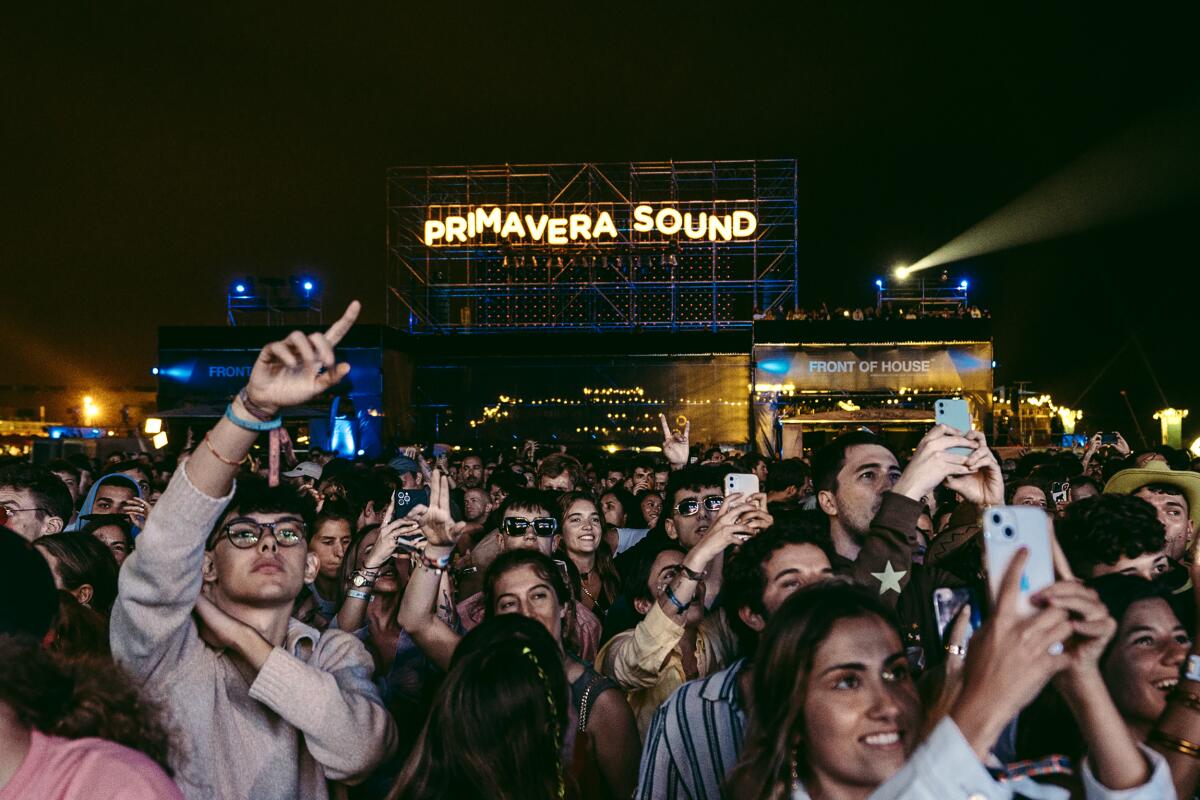
When Primavera first eyed a U.S. edition in 2019, L.A. was a natural entry point as the countryâs largest festival market, with a deep fan base for Primaveraâs edgy Latin, hip-hop and indie sounds.
The COVID-19 pandemic upended everyoneâs festival plans for close to two years. But few anticipated the sheer strangeness of the late-2022 festival market.
Although Coachella returned in full force this year, some marquee events, like Goldenvoiceâs hip-hop-centric Day N Vegas and alt-Latino Viva L.A., and the â90s alt-rock fest Flannel Nation in Long Beach, canceled outright, reportedly due to low ticket sales. Goldenvoiceâs Palomino Festival, held at Brookside at the Rose Bowl and starring Kacey Musgraves and Willie Nelson, appeared well short of a full house. Rosarito, Mexicoâs Baja Beach Fest, a major emerging festival in the contemporary Latin scene, took place just as the area was paralyzed by cartel violence. (The festival continued even as the U.S. Consulate in nearby Tijuana ordered government officials to shelter in place.) After deadly tragedies at last yearâs Once Upon a Time in L.A. and Houston-held Astroworld festivals, safety concerns are on fansâ minds as well.
Joe Berchtold, Live Nation Entertainmentâs president and chief financial officer, maintained that, so far, 2022 has been a banner year for its SoCal and U.S. festival market in spite of inflation, with attendance up 50% over 2019. âFests are like start-ups, it takes a few years to nurture and build them,â he said. âAbsolutely we saw cost inflation, but we could mitigate better than others with growth on the sponsorship side, food and beverage and the high-end VIP market.â
Representatives for the AEG-owned Goldenvoice declined to comment for this story.
Live Nation has been repeatedly accused of failing to follow industry protocols for keeping concertgoers and performers safe, according to a Times review.
Other promoters debuting or returning to L.A. after a few years away acknowledge that the pandemic was apocalyptic for live music and, post-comeback, no one quite knows what fans are willing to pay for.
âYeah, there are issues. Inflation and a potential recession are factors we considered,â said Matt Zingler, co-founder of the hip-hop festival Rolling Loud, which will move to Inglewoodâs Hollywood Park in 2023.
âWeâve seen several copycat festivals cancel this year, and I think youâll see more of that,â added co-founder Tariq Cherif. âThe festivals thatâll endure this storm will be strong brands that exist already. Itâs a very tough time to launch a new festival.â
âWe had to take a strong look at our budget,â said Jason Miller, chief executive of Eventim Live Asia, which is co-producing Octoberâs new K-pop mega-event Kamp at the Rose Bowl. âAny time youâre throwing a large-scale event, things get expensive. Coming out of COVID-19, costs are even higher than I expected, and thatâs the biggest factor right now.â
Billboardâs Brooks said that L.A.âs festival regulars have been spooked by years of event and artist cancellations and COVID-19 concerns. Inflation raised prices for promoters and made audiences less ready to pull the trigger on tickets.
âGoldenvoice and Live Nation really went after it this year being aggressive with festivals; it was almost almost a land grab for L.A.,â Brooks said. âNow people are waiting much longer to buy tickets because they know they can get better deals if they wait, and having gone through COVID-19, shaky promoters were not upfront with refunds. Fans are thinking, âIs this event going to actually happen?ââ
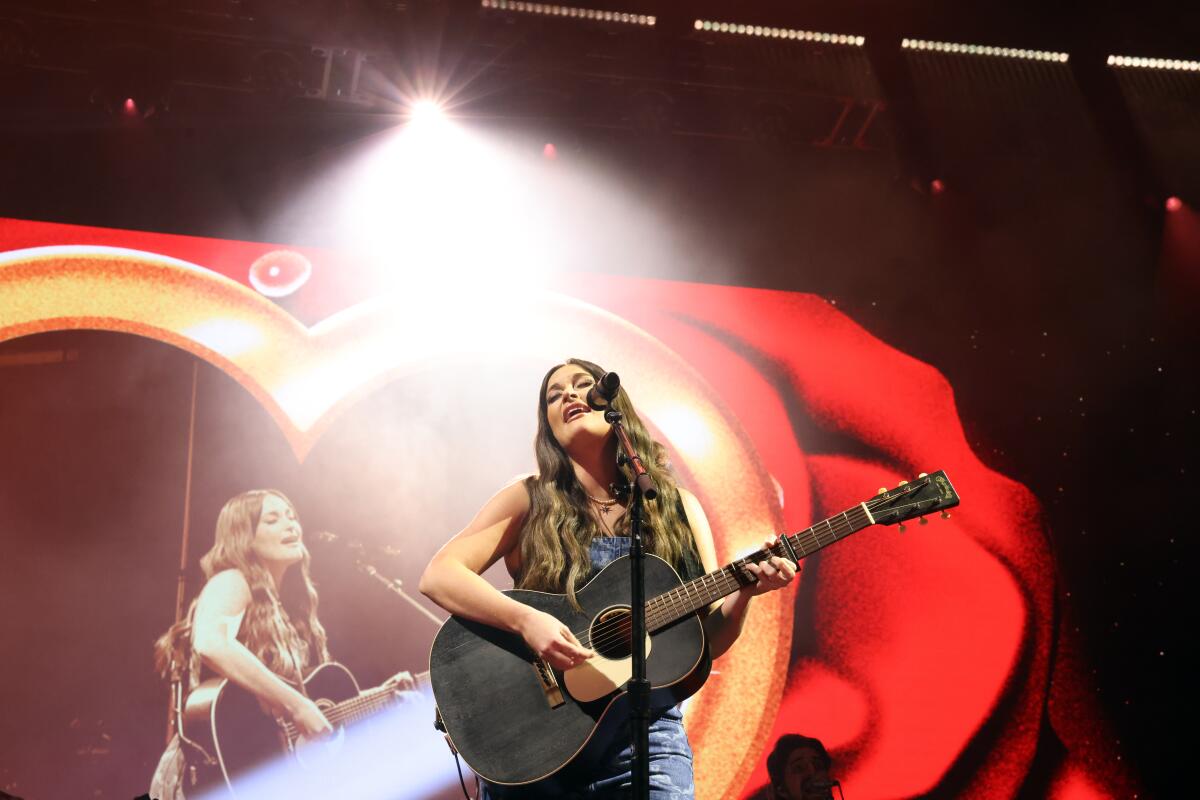
Lanza said that although Primavera Sound in L.A. has run up against the usual issues every concert promoter faces, âThe process has been normal. Weâve had three years to prepare, so in that sense itâs been easier.â Primavera will replicate its city-takeover model with shows by acts like Giveon, Darkside, Bad Gyal and Drain Gang at Live Nation venues around L.A. the week of the fest.
There have been some local festival success stories. Brooks cited Live Nationâs When We Were Young, the emo nostalgia fest in Las Vegas debuting in October, as a surprise hit that expanded to two weekends after an instant sellout.
Charlie Walker, co-founder of Live Nation-affiliated promoter C3 Presents, which produces Lollapalooza in Chicago among many festivals, agreed that those genre- or era-driven festivals like When We Were Young and the R&B and hip-hop throwback Lovers & Friends will likely continue growing. âA lot of streaming during the pandemic showed people going back into catalogs looking for snapshots in time,â he said. âThat appears to have staying power.â
But even Lanza acknowledges that the festival market is in something of a standoff right now. Fans want to see live music after two years away, but not every debut will stick, and some longtime events wonât make it through.
âIn Europe and the U.S. there are a lot of festivals, and in the coming years not all are going to survive,â he said. âThe key is to have a story. Itâs not just about building a lineup.â
More to Read
The biggest entertainment stories
Get our big stories about Hollywood, film, television, music, arts, culture and more right in your inbox as soon as they publish.
You may occasionally receive promotional content from the Los Angeles Times.

